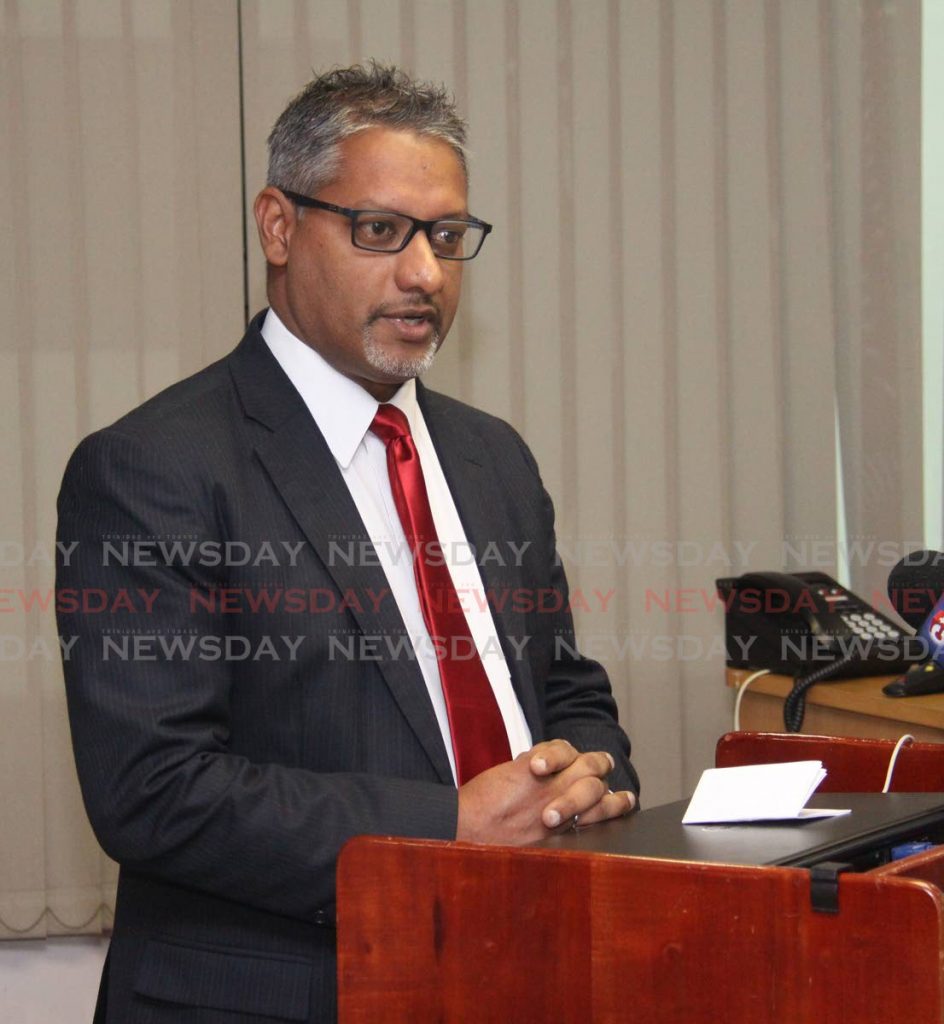Rambharat: Lack of planning division approvals problematic

MINISTER of Land, Agriculture and Fisheries Clarence Rambharat says an expert isn't needed to realise the dangers of constructing buildings without Town and Country Planning Division approval, namely those in St Augustine and Aranguez.
Rambharat spoke at the book launch for The Mangrove Forests of Trinidad and Tobago, hosted by the Institute of Marine Affairs (IMA), on Tuesday.
He said St Augustine South "has moved from dasheen bush to large warehouses over a period of time. That is the place where the Caura River comes down and eventually becomes the Macoya River as it comes through St Augustine South. Eventually it throws out into the Caroni River.
"You don't need a postgraduate degree to know that the construction of those buildings in areas where water accumulated during excessive rain...if the watercourses are blocked, the problem (affects) not only the environment, but the problem to the community is a problem that would persist," he said.
This, Rambharat said, was something caused not by him, any minister, nor the government, but bureaucrats.
"When you have Aranguez and St Augustine South and all these areas developing without Town and Country Planning approval, then you know we have a problem that is not the making of a minister or a government, but the making of bureaucrats who are not paying attention. And it's almost like we've ignored it for a long time."
He said as a member of the legislative committee, he made the requirement for at least some transparency.
"We've recently made a change in legislation dealing with registration of deeds and in the real-estate agents' legislation, and in those pieces of legislation...I ensured we at least put in some minimum requirement for people who are doing these types of developments to put a disclosure."
As a result, he explained, "A member of the public living in an area that is affected by one of these developments could know who is doing these developments, where are they located, and even make requests for information on the person and so on."
Rambharat said while the economy was performing at its peak, institutions like the IMA, Niherst and Cariri never got the full funding they requested.
"The irony," he said, "is that in these challenging economic times...the mangroves and the quality of the marine environments, the forest cover, the quality of our watercourses, our ability to manage soil, our stability – you would think all these things are unimportant.
"The reality is that the more difficult the economic circumstances are, the more important it is to manage and take care of our resources, because it's to our national resources that we end up turning. More importantly, even in these challenging times, we have to ensure we have the quality of the physical environment to keep our people happy, healthy and performing at their optimum."
But he noted the differences between the interests of different public bodies.
"The IMA looks at the mangrove in a particular way, in a way that the mangrove should be looked at."
The Ministry of Works, when they are dredging the watercourses, they are not interested in that. They have a contract to award to a contractor unknown to us, with no accountability to the public. No contractor stands up in Parliament to answer an urgent question or account to the public."
The people who dredge the river, he said, are not accountable to the public.
"The view the Ministry of Works has on mangroves and the view of the IMA are different views.
"Our ministry is responsible for land as well. The view and approach of the Commissioner of State Lands and the team that go out there, obviously they don't pay attention to what is happening on the Gulf of Paria area."
On accountability, he said, "On a number of occasions when Town and Country and EMA have come before parliamentary committees, I have asked, 'Do you see those advertisements on Facebook, where they say "lots for sale"?'
"No planning approvals, no Town and Country approvals – almost in a boastful way, almost as if we don't have approvals.
"But the whole set-up of the Town and Country Planning Division is to balance all the competing interests in a country. So that's the first thing. When you get a decision from the Town and Country Planning, a conditional approval or something, they will talk about set-backs, they'll talk about construction, they'll talk about things that have to be done and can't be done on the land.
Rambharat congratulated the book's co-authors Rahanna Juman, Hamish Asmath, Nikia Gooding and Gyasi Collins. He said their efforts were crucial for people like him who frame legislation.

Comments
"Rambharat: Lack of planning division approvals problematic"